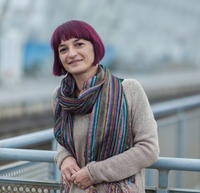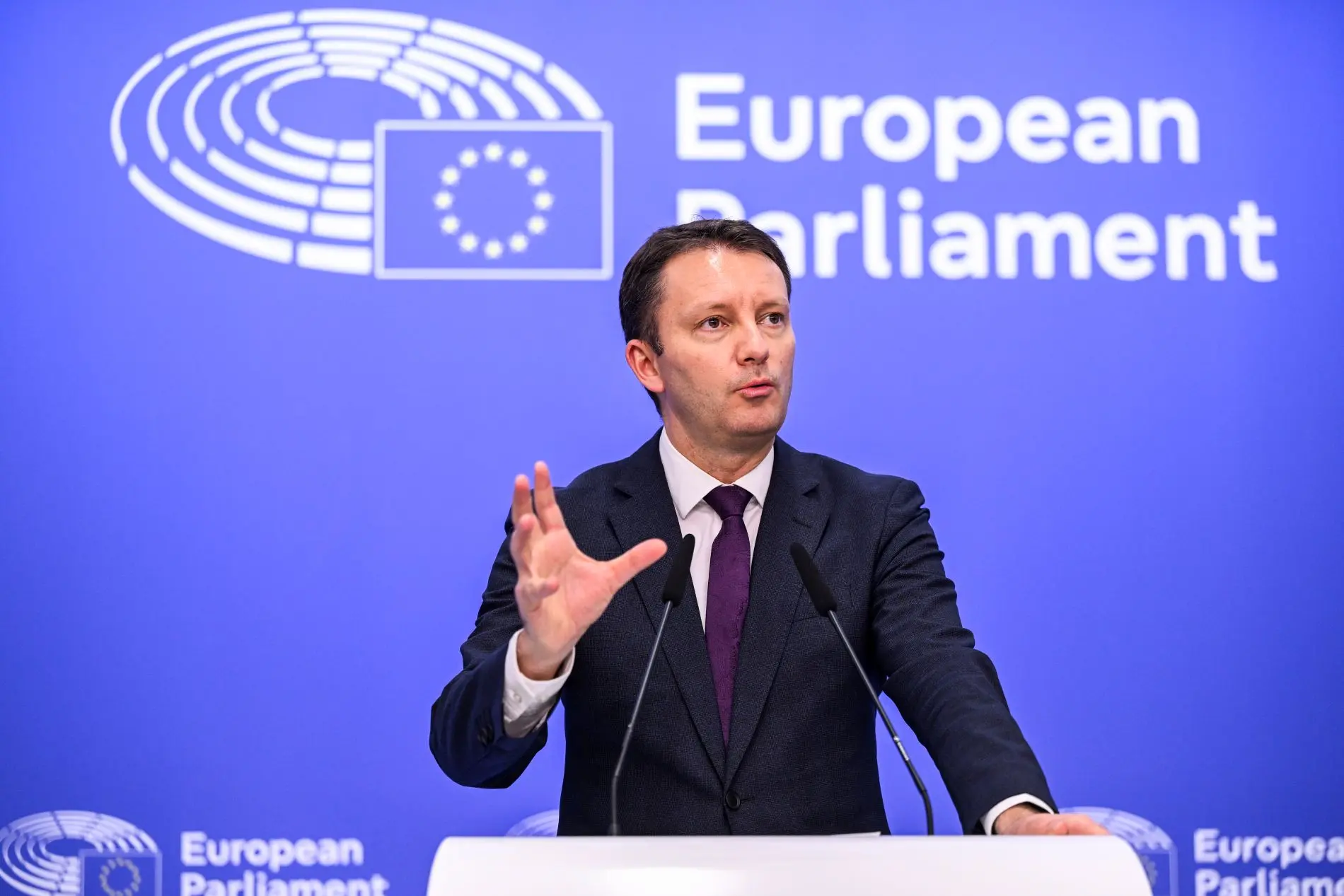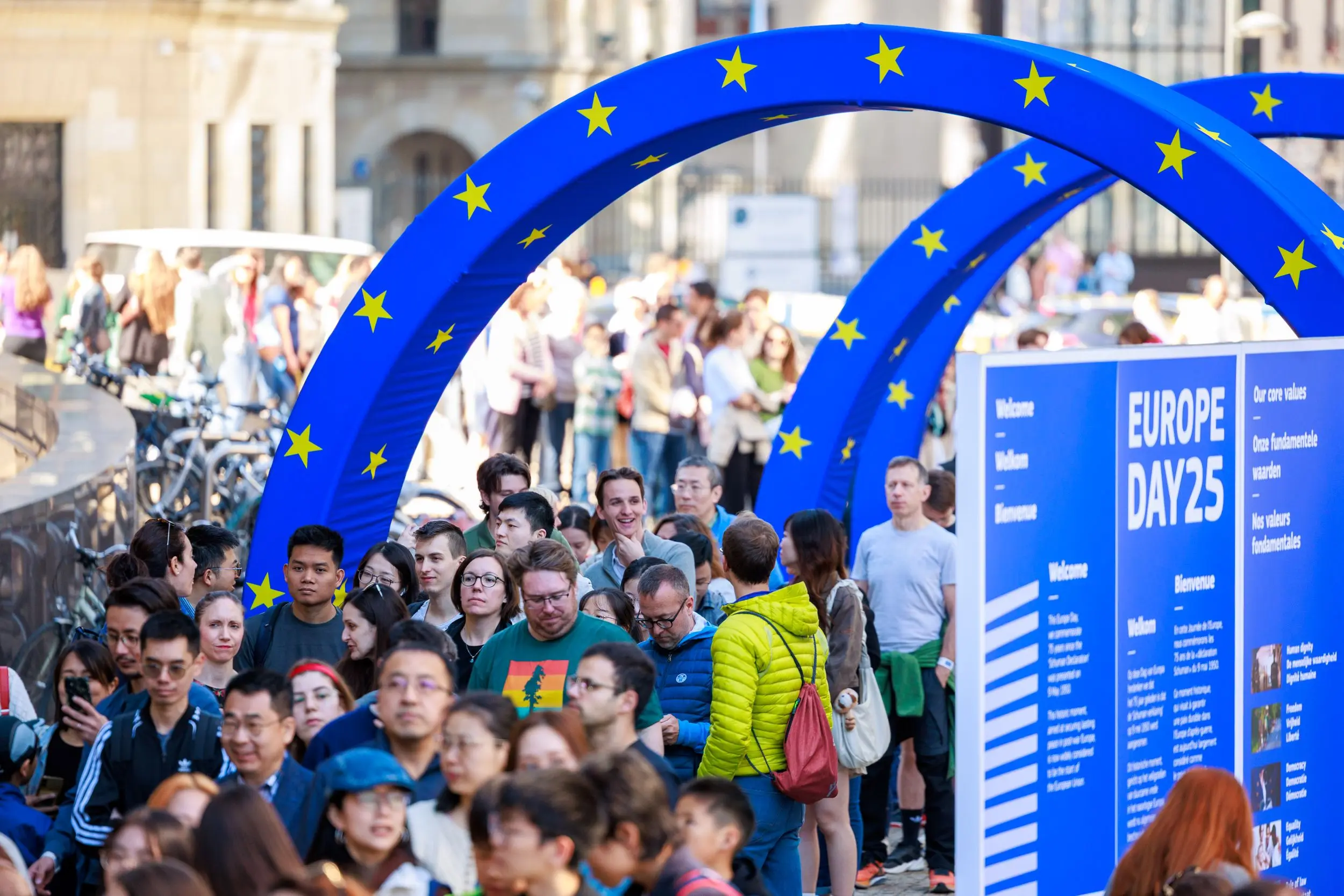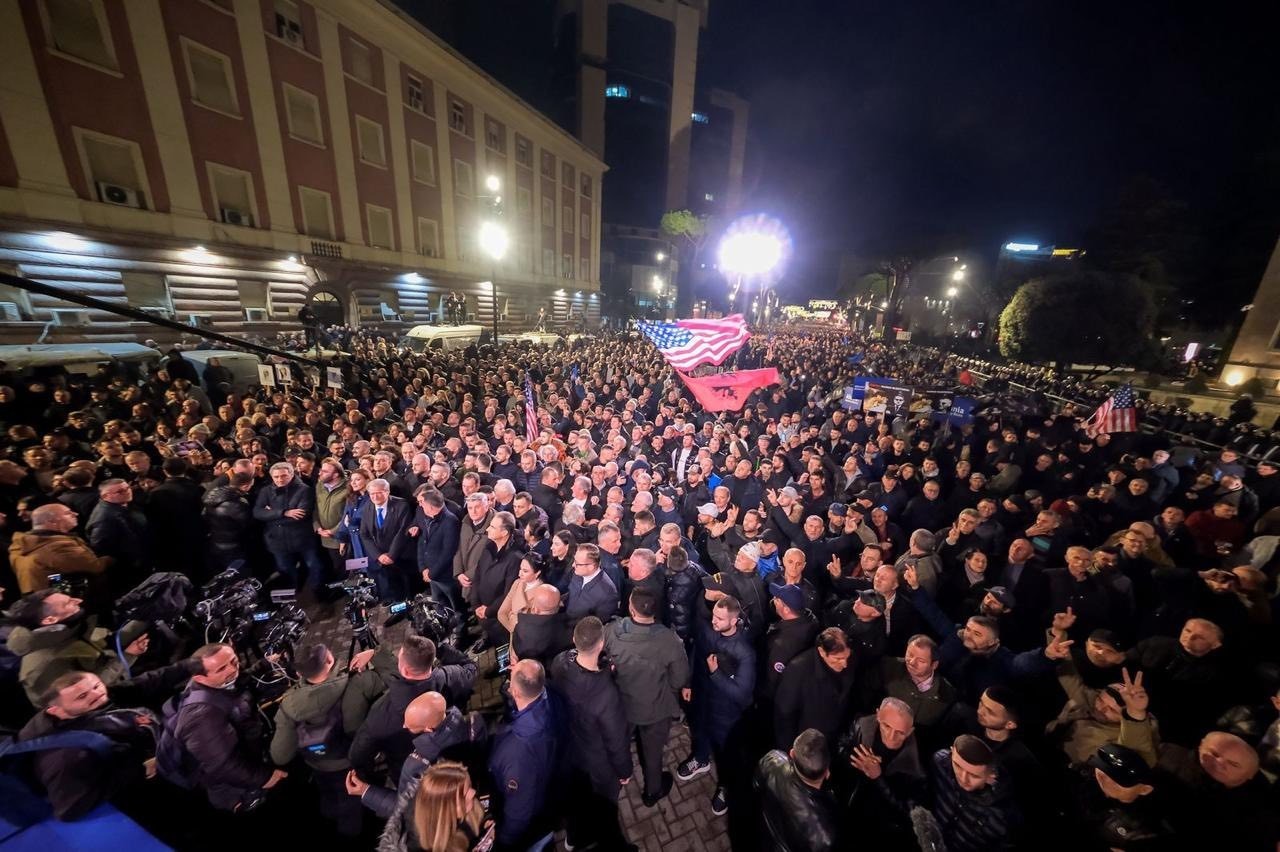Romania: democracy without participation
The Resource Centre for Public Participation is an NGO that seeks to promote citizens’ participation in the decision-making process. This is particularly difficult in Romania. We interviewed director Oana Preda
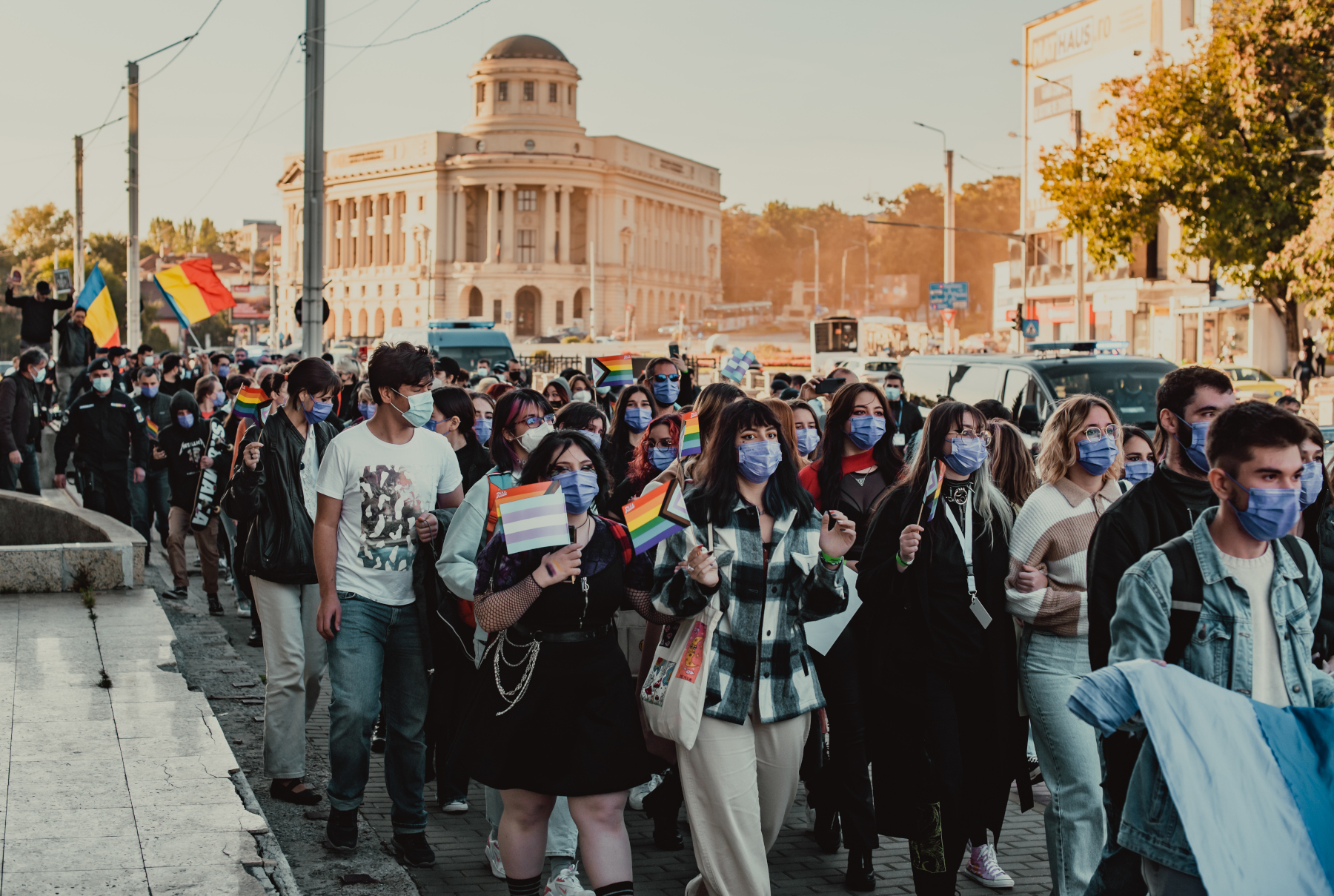
Romania-democracy-without-participation
Romania, protests photo by © Resource Centre for Public Participation
Can you introduce the association where you work?
Our organisation is called “Resource Centre for Public Participation ” (CeRe). We want citizens and civic organisations to be able to make their voices heard by policymakers. To this end, we carry out intensive advocacy and monitoring activities to ensure that public institutions follow good practices and laws in terms of rule of law, freedom of information, or consultation of citizens during the decision-making process.
For example, we organise a Gala Award for Public Participation by which we identify different advocacy initiatives and award those citizens or NGOs that have managed to take part in decision-making processes in different ways, for example by convincing a mayor to serve a hot meal in schools for children from the most marginalised families. Recently, we have started to work a lot with the most marginalised groups because social problems tend to be ignored and are hardly ever on the political agenda. We therefore decided to work more with homeless people or people in other forms of poverty, especially in rural and more isolated communities.
In cooperation with other organisations, we have also facilitated the NGOs for Citizens coalition committed to monitoring government and institutions’ adherence to democratic principles and civic space. We fight, in particular, for the expansion of civic space by lobbying for improvements to the law on public assembly and freedom of information.
How was the NGOs for Citizens coalition created? How important is it to work together with other civil society organisations to defend civic space?
We started this coalition in what were real times of crisis for civil society in Romania, during which we identified three levels of offence or abuse of our work.
The first in terms of public communication. Many public officials or opinion leaders started to spread the idea that NGOs are linked to foreign interests in the country or LGBT propaganda and so on. Then there was a lot of abuse in terms of legislation, of attempts by parliament to impose new and burdensome laws on NGOs. The third level concerns the marginalisation of the sector in the decision-making process.
When we founded the coalition, our mission was to defend civic space and try to reduce all these negative aspects. After some time, we started to see some improvement and decided to take a more proactive approach: instead of thinking of civil society as an actor to be defended, we started to think of ourselves as an actor that can actively promote civic space by improving laws and their implementation. Our first major advocacy campaign was dedicated to improving the legislation on public assembly, for example.
After some time, things changed again. A new, very strong coalition formed the government, with a very weak opposition and this has made our advocacy efforts increasingly difficult.
Then there was the pandemic, during which many democratic principles were ignored. When the government declared a state of emergency, for example, one of the first measures taken was to double the time in which institutions are required to respond to public enquiries, from 30 to 60 days. This is not only for institutions dealing with healthcare, but for any other type of institution. The problem is that there has been no public discussion about this. This is an example of how the government acted during the pandemic. The worst thing is that, at least in the beginning, no one questioned anything. When I say nobody, I am mainly referring to the media. There was no contesting of government decisions. At the time, it was worrying to see so many democratic principles being ignored without anyone saying anything.
At the end of May, you published the State of Democracy 2021 report. What are the main findings of this report? Were there any significant changes or developments compared to previous years?
The first year we analysed was 2020, the year of the pandemic, when there was the state of emergency in Romania. We thought that 2021 would be the year of normalisation, but this was not the case.
One of the issues the report considers is the transparency of decision-making processes and the means for people and NGOs to engage and be involved. The Transparency Law in Romania is quite good: governmental bodies, at central and local level, are required to publish any draft decision 30 days before its official adoption. During this time, citizens and organisations can submit recommendations or request a public debate. Of course there are many exceptions, for emergencies or otherwise, but this is the basic rule. What actually happens is that the law is only formally respected, just to tick a box on a list. To give an example, late last year the government published a draft decision on the National Recovery and Resilience Plan for which a public debate was requested. The ministry responsible organised the consultation, but the government scheduled the adoption of the decision on the agenda on the same date that the debate was to take place. In fact, the decision was taken before the 30-day limit expired and without taking into account the recommendations of the citizens. This is an example of what happens at the central level. At the local level, things are even worse; in the municipality of Bucharest, for example, only in 3-5% of cases do the decisions taken by the municipal council follow the rules of public participation. Moreover, as of 2022, the government decided to change this law without any consultation through an emergency ordinance, thus without involving citizens, even without informing them. As a coalition, we have made some statements on this issue and have recommended the ombudsman to go to the Constitutional Court, because we think that such a procedure does not respect the Constitution. The ombudsman did so, but we are still waiting for the ruling.
Another issue is freedom of access to information. Here we have noticed that the GDPR, the European Data Protection Regulation, has become one of the enemies of FOIA, the Freedom of Information Act. Indeed, more and more institutions cite the GDPR as a reason for not releasing various information. For example, some time ago we wanted to send a letter to each local councillor in one of the city’s districts, so we consulted the institution’s website thinking that local councillors’ e-mails were public, as one would expect. This was not the case. So we sent a letter to the mayor recommending that he publish councillors’ e-mail addresses on the website. The answer we received was that e-mail addresses are protected by the GDPR and cannot be made public. This is one of the absurd effects of the regulation, because obviously there should be a means of direct communication between citizens and local representatives.
Beyond the GDPR, many public institutions and political parties simply refuse to offer information when they want to keep something hidden. Unfortunately, the bill that would improve the current Freedom of Information Act has been blocked in parliament for a long time now.
Another topic we have monitored is freedom of assembly. We have a law regulating the freedom of peaceful assembly, cases of protest, or any other type of public gathering or in the public space. Here, one of the most problematic issues is that the government has maintained disproportionate restrictions on public gatherings throughout 2021, even though these restrictions have been relaxed for similar events such as concerts or religious events, for going to the cinema or to a shopping centre. Restrictions for public meetings were relaxed much more slowly. I no longer remember how many times we filed complaints and tried to convince the government to reconsider the restrictions imposed. We had problems with the organisation of the LGBT pride in Bucharest and another big city in Romania, where mayors tried to use the pandemic as a pretext to ban or divert the route of the pride.
Another problem with freedom of assembly is related to the law itself, which is now rather outdated and written by the Ministry of the Interior with public safety in mind rather than freedom of assembly as a right of the citizens. Under the current legislation, a public assembly can be banned for a wide range of reasons: it is too close to the train station, it is too close to the metro station, it disturbs public employees… but protests are sometimes organised to disturb, which is widely accepted, understood, and defended by international and European law. It has been three years since we started calling for the improvement of this law. With the previous parliament at one point there was some progress, the bill had been passed in one of the two chambers. With the new majority in parliament, however, there is a risk that the proposal will be rejected.
No less than three chapters deal closely with media freedom. In particular, it is said that attacks against journalists in Romania frequently come from the political world. As you said, journalists often renounce their role in monitoring the proper conduct of public life and transparency for fear of retaliation. These are all issues that are analysed in the European Commission’s Rule of Law Report published in July. How is the Rule of Law Report received in Romania? Do you think civil society and journalists talk enough about this process?
No, not really. This is certainly a source of disappointment for us, because we see that many issues related to civic space, media freedom, and the rule of law do not enter the debate or the public agenda, not even the agenda of journalists or most civil society organisations.
Does the Resource Centre or the NGOs for Citizens coalition also work on a European or international level? How do you use European tools or spaces for civic participation? Do you have any kind of relationship with European institutions or do you use tools and spaces offered by the EU?
Honestly, we don’t. Unfortunately, we cannot work on a European or international level because we are a small team and with the resources we have, we have decided to focus on other priorities. Some NGOs in the NGOs for Citizens coalition do this, albeit to a small extent.
You mentioned the lack of resources, are there other challenges or obstacles that prevent this kind of work at transnational or European level?
A fundamental problem is the lack of human resources. We are a small team and this country keeps us very busy. With the NGO for Citizens coalition we try to constantly monitor what is happening here and react as quickly as possible, so it is often the government and other public institutions that dictate our agenda.
Broadening the picture to the Romanian landscape, to what extent do you think that civil society organisations see the European Union and the tools it offers for civic participation as an ally in their political struggles?
Now not so much, I would say. Before 2006, when Romania joined the EU, civil society as a watchdog and supporter of the integration process relied more on the EU, its instruments and opportunities. I think it was easier to use European spaces and instruments as a kind of leverage, because the government had a real interest in bringing the country into the EU, Romania was being monitored and had to adopt European standards. After integration, it became more difficult to use these advocacy tools; today there is no real monitoring mechanism for member states.
Certainly European spaces and instruments are useful, but I don’t know to what extent. On the one hand I think it is important that international bodies or the EU react to what is happening in Romania. On the other hand, I sometimes have the impression that this government does not care. For example, when we fought to improve the legislation on public assembly, we used many rulings of the European Court of Human Rights as arguments to show that everything we were saying was based on several ECHR decisions. We used the European guidelines… Everything was ignored. They didn’t care. Of course, it was good for us to be able to cite certain documents. However, we could only use them to a limited extent because they were mostly ignored.
So, does the government’s lack of response and disinterest somehow discourage the civil sector from using European spaces?
Yes, but that does not mean that it is useless to do so, on the contrary, it is still important. We try to use every opportunity we get to denounce what is not working. After the start of the war in Ukraine, many international bodies came to Romania to assess the situation. We thought it would be useful to denounce the shortcomings of the institutions to every delegation that visited us.
Does your organisation have relations or cooperation with other NGOs or civil society organisations from other EU Member States?
We have tried. But again, we don’t do a lot of international work, not because we think it is not useful, but because we are a small team and we try to concentrate our resources. However, if we had more people and were more organised these collaborations would be very useful and helpful. Being able to say that our declaration is supported by 20 NGOs across Europe would certainly make our voice louder. Unfortunately, our resources are rather limited.
The NGOs for Citizens coalition was born thanks to the contribution of CIVITATES – a philanthropic initiative for democracy and solidarity in Europe, which provides support to civil society to defend the civic space and strengthen its role within European democracy.
Romania: democracy without participation
The Resource Centre for Public Participation is an NGO that seeks to promote citizens’ participation in the decision-making process. This is particularly difficult in Romania. We interviewed director Oana Preda

Romania-democracy-without-participation
Romania, protests photo by © Resource Centre for Public Participation
Can you introduce the association where you work?
Our organisation is called “Resource Centre for Public Participation ” (CeRe). We want citizens and civic organisations to be able to make their voices heard by policymakers. To this end, we carry out intensive advocacy and monitoring activities to ensure that public institutions follow good practices and laws in terms of rule of law, freedom of information, or consultation of citizens during the decision-making process.
For example, we organise a Gala Award for Public Participation by which we identify different advocacy initiatives and award those citizens or NGOs that have managed to take part in decision-making processes in different ways, for example by convincing a mayor to serve a hot meal in schools for children from the most marginalised families. Recently, we have started to work a lot with the most marginalised groups because social problems tend to be ignored and are hardly ever on the political agenda. We therefore decided to work more with homeless people or people in other forms of poverty, especially in rural and more isolated communities.
In cooperation with other organisations, we have also facilitated the NGOs for Citizens coalition committed to monitoring government and institutions’ adherence to democratic principles and civic space. We fight, in particular, for the expansion of civic space by lobbying for improvements to the law on public assembly and freedom of information.
How was the NGOs for Citizens coalition created? How important is it to work together with other civil society organisations to defend civic space?
We started this coalition in what were real times of crisis for civil society in Romania, during which we identified three levels of offence or abuse of our work.
The first in terms of public communication. Many public officials or opinion leaders started to spread the idea that NGOs are linked to foreign interests in the country or LGBT propaganda and so on. Then there was a lot of abuse in terms of legislation, of attempts by parliament to impose new and burdensome laws on NGOs. The third level concerns the marginalisation of the sector in the decision-making process.
When we founded the coalition, our mission was to defend civic space and try to reduce all these negative aspects. After some time, we started to see some improvement and decided to take a more proactive approach: instead of thinking of civil society as an actor to be defended, we started to think of ourselves as an actor that can actively promote civic space by improving laws and their implementation. Our first major advocacy campaign was dedicated to improving the legislation on public assembly, for example.
After some time, things changed again. A new, very strong coalition formed the government, with a very weak opposition and this has made our advocacy efforts increasingly difficult.
Then there was the pandemic, during which many democratic principles were ignored. When the government declared a state of emergency, for example, one of the first measures taken was to double the time in which institutions are required to respond to public enquiries, from 30 to 60 days. This is not only for institutions dealing with healthcare, but for any other type of institution. The problem is that there has been no public discussion about this. This is an example of how the government acted during the pandemic. The worst thing is that, at least in the beginning, no one questioned anything. When I say nobody, I am mainly referring to the media. There was no contesting of government decisions. At the time, it was worrying to see so many democratic principles being ignored without anyone saying anything.
At the end of May, you published the State of Democracy 2021 report. What are the main findings of this report? Were there any significant changes or developments compared to previous years?
The first year we analysed was 2020, the year of the pandemic, when there was the state of emergency in Romania. We thought that 2021 would be the year of normalisation, but this was not the case.
One of the issues the report considers is the transparency of decision-making processes and the means for people and NGOs to engage and be involved. The Transparency Law in Romania is quite good: governmental bodies, at central and local level, are required to publish any draft decision 30 days before its official adoption. During this time, citizens and organisations can submit recommendations or request a public debate. Of course there are many exceptions, for emergencies or otherwise, but this is the basic rule. What actually happens is that the law is only formally respected, just to tick a box on a list. To give an example, late last year the government published a draft decision on the National Recovery and Resilience Plan for which a public debate was requested. The ministry responsible organised the consultation, but the government scheduled the adoption of the decision on the agenda on the same date that the debate was to take place. In fact, the decision was taken before the 30-day limit expired and without taking into account the recommendations of the citizens. This is an example of what happens at the central level. At the local level, things are even worse; in the municipality of Bucharest, for example, only in 3-5% of cases do the decisions taken by the municipal council follow the rules of public participation. Moreover, as of 2022, the government decided to change this law without any consultation through an emergency ordinance, thus without involving citizens, even without informing them. As a coalition, we have made some statements on this issue and have recommended the ombudsman to go to the Constitutional Court, because we think that such a procedure does not respect the Constitution. The ombudsman did so, but we are still waiting for the ruling.
Another issue is freedom of access to information. Here we have noticed that the GDPR, the European Data Protection Regulation, has become one of the enemies of FOIA, the Freedom of Information Act. Indeed, more and more institutions cite the GDPR as a reason for not releasing various information. For example, some time ago we wanted to send a letter to each local councillor in one of the city’s districts, so we consulted the institution’s website thinking that local councillors’ e-mails were public, as one would expect. This was not the case. So we sent a letter to the mayor recommending that he publish councillors’ e-mail addresses on the website. The answer we received was that e-mail addresses are protected by the GDPR and cannot be made public. This is one of the absurd effects of the regulation, because obviously there should be a means of direct communication between citizens and local representatives.
Beyond the GDPR, many public institutions and political parties simply refuse to offer information when they want to keep something hidden. Unfortunately, the bill that would improve the current Freedom of Information Act has been blocked in parliament for a long time now.
Another topic we have monitored is freedom of assembly. We have a law regulating the freedom of peaceful assembly, cases of protest, or any other type of public gathering or in the public space. Here, one of the most problematic issues is that the government has maintained disproportionate restrictions on public gatherings throughout 2021, even though these restrictions have been relaxed for similar events such as concerts or religious events, for going to the cinema or to a shopping centre. Restrictions for public meetings were relaxed much more slowly. I no longer remember how many times we filed complaints and tried to convince the government to reconsider the restrictions imposed. We had problems with the organisation of the LGBT pride in Bucharest and another big city in Romania, where mayors tried to use the pandemic as a pretext to ban or divert the route of the pride.
Another problem with freedom of assembly is related to the law itself, which is now rather outdated and written by the Ministry of the Interior with public safety in mind rather than freedom of assembly as a right of the citizens. Under the current legislation, a public assembly can be banned for a wide range of reasons: it is too close to the train station, it is too close to the metro station, it disturbs public employees… but protests are sometimes organised to disturb, which is widely accepted, understood, and defended by international and European law. It has been three years since we started calling for the improvement of this law. With the previous parliament at one point there was some progress, the bill had been passed in one of the two chambers. With the new majority in parliament, however, there is a risk that the proposal will be rejected.
No less than three chapters deal closely with media freedom. In particular, it is said that attacks against journalists in Romania frequently come from the political world. As you said, journalists often renounce their role in monitoring the proper conduct of public life and transparency for fear of retaliation. These are all issues that are analysed in the European Commission’s Rule of Law Report published in July. How is the Rule of Law Report received in Romania? Do you think civil society and journalists talk enough about this process?
No, not really. This is certainly a source of disappointment for us, because we see that many issues related to civic space, media freedom, and the rule of law do not enter the debate or the public agenda, not even the agenda of journalists or most civil society organisations.
Does the Resource Centre or the NGOs for Citizens coalition also work on a European or international level? How do you use European tools or spaces for civic participation? Do you have any kind of relationship with European institutions or do you use tools and spaces offered by the EU?
Honestly, we don’t. Unfortunately, we cannot work on a European or international level because we are a small team and with the resources we have, we have decided to focus on other priorities. Some NGOs in the NGOs for Citizens coalition do this, albeit to a small extent.
You mentioned the lack of resources, are there other challenges or obstacles that prevent this kind of work at transnational or European level?
A fundamental problem is the lack of human resources. We are a small team and this country keeps us very busy. With the NGO for Citizens coalition we try to constantly monitor what is happening here and react as quickly as possible, so it is often the government and other public institutions that dictate our agenda.
Broadening the picture to the Romanian landscape, to what extent do you think that civil society organisations see the European Union and the tools it offers for civic participation as an ally in their political struggles?
Now not so much, I would say. Before 2006, when Romania joined the EU, civil society as a watchdog and supporter of the integration process relied more on the EU, its instruments and opportunities. I think it was easier to use European spaces and instruments as a kind of leverage, because the government had a real interest in bringing the country into the EU, Romania was being monitored and had to adopt European standards. After integration, it became more difficult to use these advocacy tools; today there is no real monitoring mechanism for member states.
Certainly European spaces and instruments are useful, but I don’t know to what extent. On the one hand I think it is important that international bodies or the EU react to what is happening in Romania. On the other hand, I sometimes have the impression that this government does not care. For example, when we fought to improve the legislation on public assembly, we used many rulings of the European Court of Human Rights as arguments to show that everything we were saying was based on several ECHR decisions. We used the European guidelines… Everything was ignored. They didn’t care. Of course, it was good for us to be able to cite certain documents. However, we could only use them to a limited extent because they were mostly ignored.
So, does the government’s lack of response and disinterest somehow discourage the civil sector from using European spaces?
Yes, but that does not mean that it is useless to do so, on the contrary, it is still important. We try to use every opportunity we get to denounce what is not working. After the start of the war in Ukraine, many international bodies came to Romania to assess the situation. We thought it would be useful to denounce the shortcomings of the institutions to every delegation that visited us.
Does your organisation have relations or cooperation with other NGOs or civil society organisations from other EU Member States?
We have tried. But again, we don’t do a lot of international work, not because we think it is not useful, but because we are a small team and we try to concentrate our resources. However, if we had more people and were more organised these collaborations would be very useful and helpful. Being able to say that our declaration is supported by 20 NGOs across Europe would certainly make our voice louder. Unfortunately, our resources are rather limited.
The NGOs for Citizens coalition was born thanks to the contribution of CIVITATES – a philanthropic initiative for democracy and solidarity in Europe, which provides support to civil society to defend the civic space and strengthen its role within European democracy.

